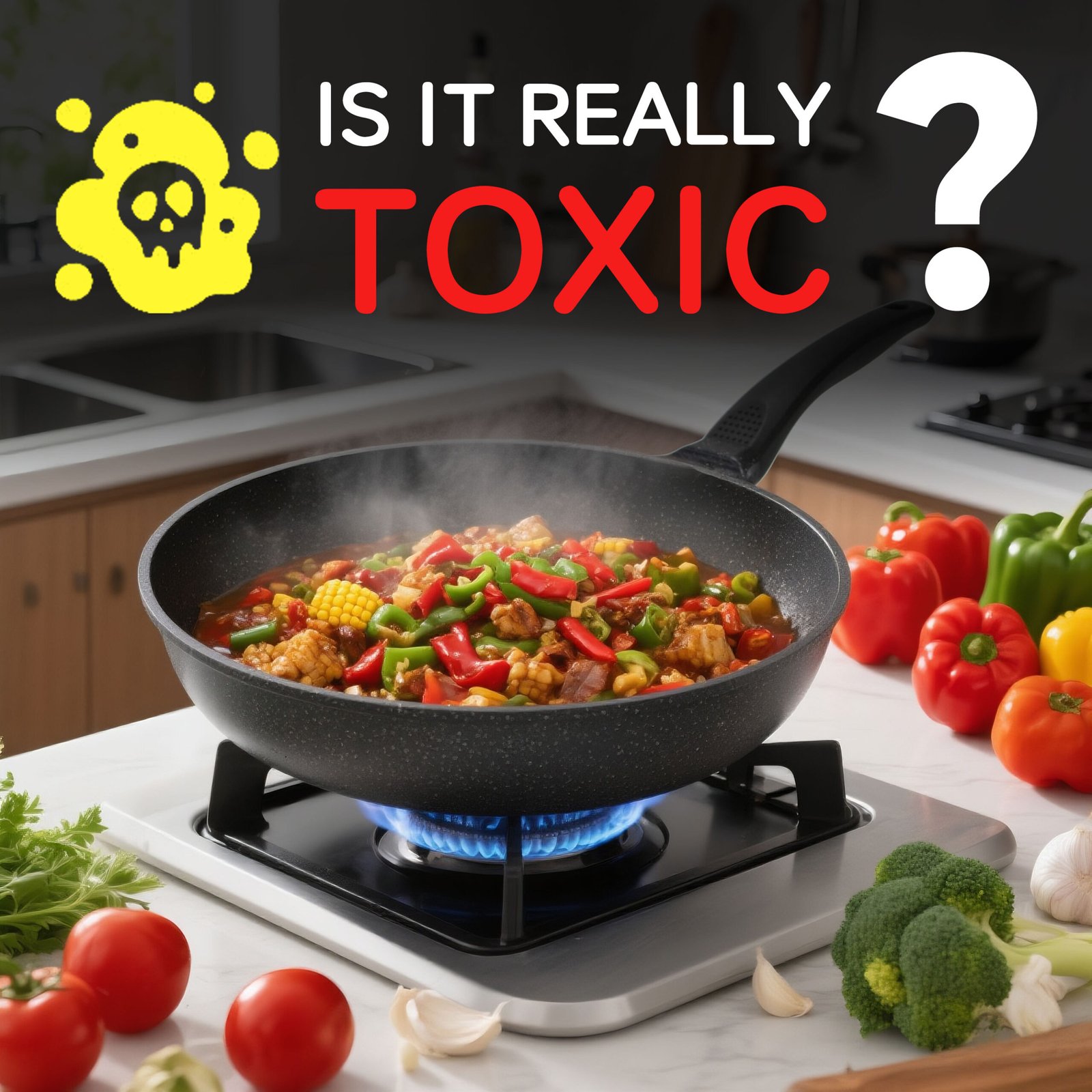Aluminum Nonstick Cookware is Toxic?

Aluminum Non-stick cookware is popular because it is lightweight, conducts heat quickly, and is affordable. Many people are worried that its aluminum alloy base material and surface coating will have an impact on health, mainly “aluminum poisoning” and “coating off accidental food”, two major concerns. In fact, under the premise of modern technology and correct use, the quality of qualified aluminum non-stick cookware is safe and reliable kitchen utensils.
The core safety line of defense: why aluminum cookware is safe?
1.Anodic oxidation hard film technology treatment:
First of all, it transforms the aluminum surface into an extremely hard, stable and corrosion-resistant aluminum oxide layer through an electrochemical process. This layer makes aluminum stable and no longer has the activity of metallic aluminum, and will not react with acid or alkali substances in food, thus completely blocking the migration of aluminum elements to food. Secondly, the coating is hard and abrasion-resistant, with a hardness second only to that of diamonds, making it extremely durable and far tougher than ordinary aluminum.
2.Barrier to Non-Stick Coating:
Even if they are not anodized cookware, regular aluminum non-stick cookware is covered with a dense non-stick coating on the inside surface of the cookware. This coating also acts as a complete barrier between food and the aluminum substrate. As long as the coating is intact, aluminum will not come into contact with food. Therefore, qualified products eliminate the problem of aluminum precipitation through the physical barrier (coating or oxide film).
The Golden Rule of Healthy Use: Protecting the Coating is Protecting Your Health
The real health risk does not come from the aluminum itself, but from the substances that can be dislodged when the coating is broken and the exposure of the aluminum substrate when the coating is damaged by improper use. Follow these rules for safe use:
- Purchase qualified products:
✅Purchase products from reputable brands to ensure they meet national food safety standards.
✅Give preference to cookware labeled “ anodized” or “non-stick coated” for greater durability and safety.
- Gentle cooking tools:
❌Strictly prohibit the use of metal spatulas, steel brushes and steel wire balls. These hard objects will scratch the coating directly.
✅ Cookware made of silicone, wood or nylon is recommended.
- Cooking at low to medium temperatures:
❌The non-stick coating is not suitable for prolonged dry searing or stir-frying. Teflon coatings begin to become unstable and break down harmful substances at temperatures over 260°C. Cooking at low temperatures is not recommended.
✅ Everyday cooking (e.g. omelette) does not usually exceed this temperature. Avoid leaving empty cookware on high heat for long periods of time.
- Gentle cleaning methods:
❌Sudden heat and cold will cause the coating and the substrate to separate faster due to different coefficients of expansion.
❌ Using strong acid and alkali cleaners.
✅Wait for cookware to cool naturally before cleaning.
✅Use a soft cloth, sponge, and neutral detergent to clean.
- Withdraw OLD COOKWARE on time :
The coating will wear off with use. Once the coating is found🔍:
🌟Visible scratches
🌟Patchy peeling
🌟Food starts to stick easily
Please replace your cookware with new ones as soon as possible. Continued use is not only a poor cooking experience, but also a potential health risk.
Proper use of quality aluminum non-stick cookware will not affect your health. The core of its safety lies in the “protective film” (either anodized or non-stick) that separates food from the aluminum substrate. Our focus should shift from “fear of aluminum” to “love of coating”.








